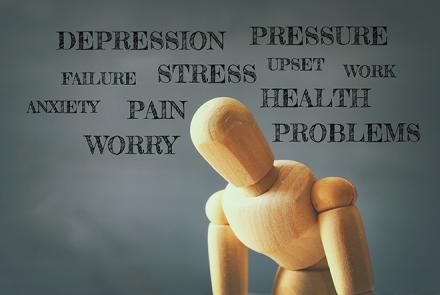
Zeenat Jahan, advanced life coach, takes us through the myriad benefits of positive psychology that reverses the focus from negative to positive and can benefit people at different stages on the mental health spectrum.
At a recent conference on Bipolar Disorder, you spoke about how positive psychology can help adults with depression or bipolar. What exactly is positive psychology?
Positive psychology is a scientific approach to studying human thoughts, feelings, and behavior with a focus on strengths instead of weakness, building the good in life instead of repairing the bad, and taking the lives of average people up to “great” instead of focusing solely on moving those who are struggling up to “normal” (Peterson, 2008).
The term "positive psychology" is a broad one, encompassing a variety of techniques that encourage people to identify and further develop their own positive emotions, experiences, and character traits.
What are the techniques used in positive psychology?
Psychologist Carol Kauffman, Director of the Coaching and Positive Psychology Initiative at Harvard's McLean Hospital, discussed four techniques for integrating the principles of positive psychology.
- Reverse the focus from negative to positive
- Develop a language of strength
- Balance the positive and negative
- Build strategies that foster hope
Positive psychology has opened a new way of looking into problems of mental health. Could you elaborate on this?
Mental health therapists in the past dealt mostly with psychological diseases and the health issues that came from it. Their focus was more on the manifested symptoms of mental illness and less on individual factors like motivation, positive thinking, happiness, and emotional resilience.
But thanks to numerous research work done on Positive Psychology, the ways of dealing with mental illnesses has changed. As a composite of clinical psychology, positive science helps in understanding how we can work on enhancing our internal capabilities and make the best of our present. Rather than focusing on symptomatic therapy and treatment, positive psychology centres around emotional stability, expectation management, and fruitful thinking, which is why it is referred to as the ‘study of ordinary strengths and virtues’ (APA, 2001).
From the perspectives of positive psychology, mental health may include an individual's ability to enjoy life. How is this applicable during the low phases of person’s emotional well-being?
Applying Positive Psychology regularly and making it a way of life reduces the chances of relapse of depression.
During low phases, patient may require regular visits to the therapist and strictly follow the exercises. It depends a lot on the caregivers to make sure that the patient takes therapies as seriously as medicines.
New research is starting to explore how gratitude works to improve our mental health. Can gratitude really drive away toxic emotions?
Yes, it does.
Toxic emotions cause bad things to happen in your body. Stress can literally cause disease if left unchecked. In 1971, a scientist named J.W. Mason published a peer reviewed paper entitled, “A Re-evaluation of the Concept of “Non-specificity” in Stress Theory.” In it he explained how one kind of stress might cause a strong release of neurotransmitters called catecholamines (they control muscle tone, blood pressure, heart rate and sugar metabolism) but a weak release of adrenaline and cortisol (these cause the fight or flight response).
Some the most common toxic emotions are:
Bitterness, unforgiveness, resentment, retaliation, anger, hatred, guilt, shame, sorrow, regret, jealousy, helplessness, depression, apathy, loneliness, fear, rejection…
So, not only feeling grateful, but regular practice of any positive psychology intervention helps in fighting and reducing these toxic emotions.
What are the key positive psychology interventions that help enhance well-being and personal recovery in patients with mental health?
Positive Psychology Interventions for Depression
1. Increasing Positive Emotions by practicing;
- Appreciation of beauty and excellence
- Gratitude
- Hope
- Humor and playfulness
- Spirituality
2. Enhancing Coping Skills and Building Resilience by practicing;
- Acceptance
- Commitment
3. By finding Meaning and purpose of Life
4. By Building Social Support like Peer Support group, Focussed activity groups, Community based groups.
In your talk, you mentioned that you once suffered from depression and have now overcome it successfully? Could you tell us what did you do to manage your depression?
I was suffering from depression since a very young age, till around I was 40 years old. The day I started Yoga and Meditation, I learned many ways to manage my lows, stress and negative thoughts.
Slowly, I started following Yoga, Meditation, Walking, Running, Workouts, and Balanced Diet religiously.
I started focusing on what I am good at. Also, I focussed on strengthening my emotional/ mental/ spiritual and social health, made good friends, continued enhancing my knowledge and skills… I still do all these.
As a professional life coach you focus on human empowerment by re-engineering the mindset? What do you mean by this?
Till the age of around 2 years, we are normally very close to the source (the Universe), hence we do not understand fear, sadness, anger or any such disempowering traits. Slowly, as we begin to understand languages, relationships, responses, reactions…. We slowly move away from the source and become part of this world. And we start wearing masks that family, school, teachers, friends, society offer us.
The day we are hit badly by life and realise things are not the way it would have been… we try figuring out the ways to get back to our natural self.
And to live a meaningful/purposeful life, we must re-engineer our mindsets to start exploring our own self.
Why do you think positive psychology is needed in today’s society?
There is no other way but to remain positive in all circumstances. I generally talk about 5 types of health, for a fulfilling life. They are;
- Physical Health
- Mental Health
- Emotional Health
- Spiritual Health
- Social Health
And to achieve all these, we must remain motivated, grateful, peaceful… we have to think positive, feel positive, act positive and live positive.
Could you tell us 5 positive psychology exercises that can help train our brain to be more positive?
- Count your Blessings
- Practice Kindness
- Learn to live in the present moment
- Practice Meditation
- Have and follow your daily/weekly/monthly/yearly goal
Update on 13Nov2019: A recent study showed that Kindness reduces avoidance goals in socially anxious individuals.
(Zeenat Jahan, is Chief Training Consultant, INEX Consultants, a Behavioural & Management Training Initiative. She holds a Master’s Degree in Human Resources & Behavioural Sciences and MS in Counselling & Psychotherapy.)

References
1. Group Wellbeing: Morale from a positive psychology perspective, Peterson 2008








